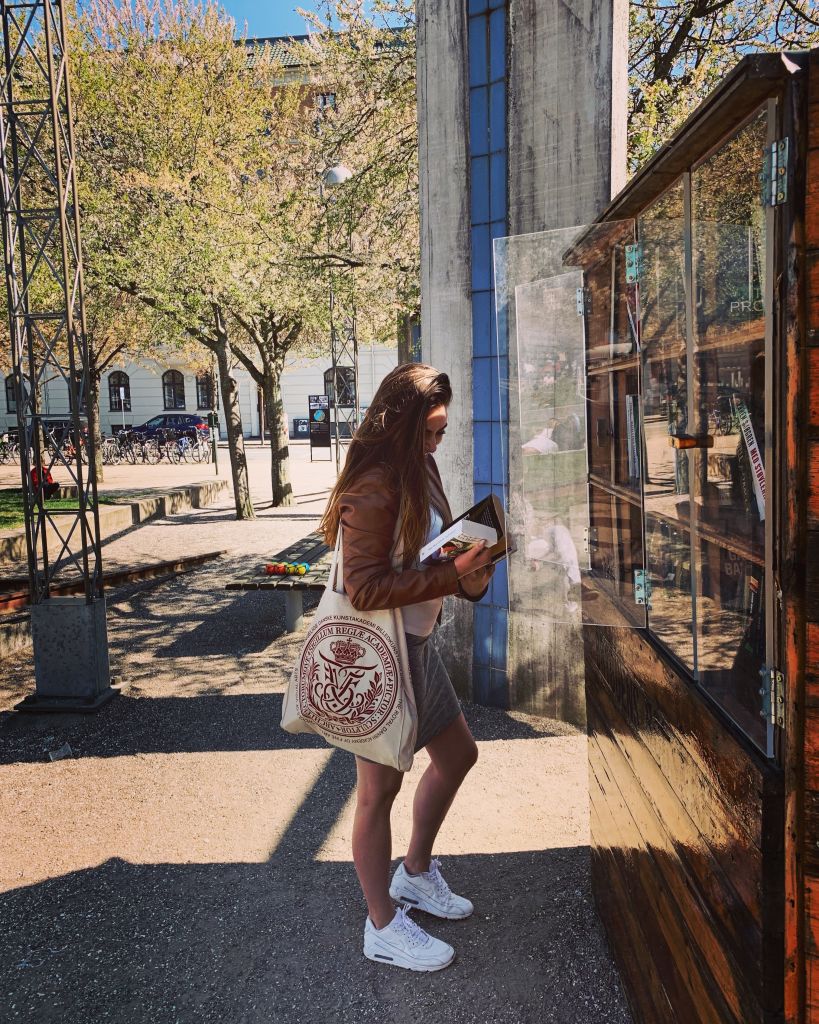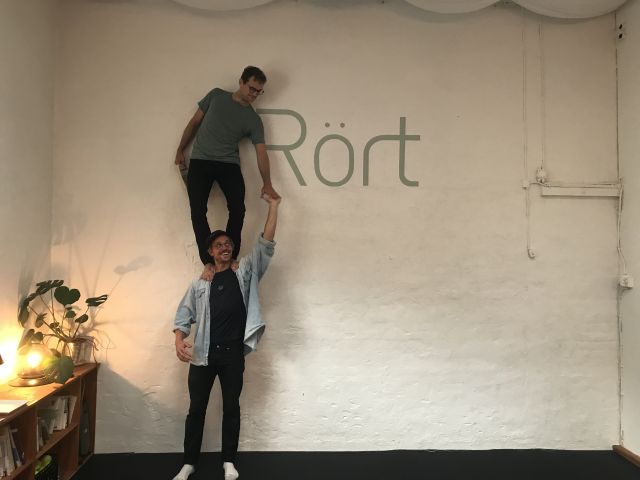She began investing in crypto currencies at 14 – now here are her tips for getting your life together 😀

(Private photo)
I was a strange kid when I was growing up. I always wanted to make the most out of my time, to seize every opportunity and to be as successful as my resources allowed me to be.
I started investing in crypto currencies when I was 14 (yes, I had a great time at the end of 2017), started working in an office when I was 16 and reading books was my main occupation when I was not studying for school. Sounds like a boring life, huh? Well it definitely wasn’t to me – I was loving the fact that I was making the most out of my time and energy!
All of this effort really paid off both financially and in the creation of a lot of new and exciting opportunities. But it also had its price. Always working, always studying, being productive every second of every day eventually led to a burnout. It took me quite some time to realize that I had to find balance in life, otherwise I would never get out of the rut that my burnout has put me in.
I started investing in crypto currencies when I was 14
When I was 19, I started researching and reading how to achieve balance, make the most out of my time and energy and still be productive at work and enjoy life. Then and there with the help of one single book which started an avalanche, I finally found my modus operandi (a particular way or method of doing something).
The disciplined pursuit of Less… but Better
When I read Greg McKeown’s book “Essentialism” I was extremely motivated to change my life in a way that would allow me to have control over my actions and a clear picture of what I wanted to do. I was tired of putting too many things on my plate, working late hours and being constantly exhausted.
The book has created immense value for me. The structure, the content, the research, the author’s comments all contribute to a valuable reading experience. I would strongly recommend you give it a go (they have it in our CBS Library).
Here are the main things that caught my eye and that I decided to implement to get my life together:
The wisdom of life consists of the elimination of non-essentials
Your time, energy and focus are finite resources. Spreading your resources in 10 different directions will result in failure in all of them or mediocrity at best. Finding the one thing that we can do that makes the highest contribution is the way to go. When we really have clarity of purpose, it enables us to succeed at the endeavor.
If you don’t take control of your time, somebody else will
Previously, I was taking on all kinds of jobs, projects, courses that, at the end of the day, didn’t really contribute to any of my life goals. They only kept me busy and drained both my physical and mental energy.
I would advise anyone who is feeling like they are in a rut to just take the time one day to sit down and really think about what they want to achieve. They don’t need to be long-term goals. Think about what you want to achieve at the end of this month, at the end of this quarter, at the end of this year. Filter what is important and what is not. And then eliminate the non-essential.
Creating a system
If you don’t take control of your time, somebody else will. If you don’t make your own decisions, someone else will make them for you. Essentialism is a modus operandi that can help you reduce noise and clutter, simplify your life and focus only on the things that are truly important for you. And for that you need a system. A system for purging.
1. Explore and evaluate
The ability to choose is what makes us human. It cannot be given or taken away. It can only be forgotten. And I think we have all forgotten how powerful a good choice, a right action can be. But how can you know if the decision you just took is aligned with your goals?
The key is to put the decision to an extreme test. If you feel total and utter conviction to do something, then it is a “Hell, Yes!”
Anything less gets a thumbs down. When you evaluate an option, think about the single most important criterion about that decision. Then just give the answer to the question a score between 0 and 100.
If you rate it any lower than 90% then automatically change the rating to 0 and reject it. The act of applying selective criteria forces you to make the best choice. You decide, nobody else does. It is a decision by design, not by default. Narrow your selection criteria and discipline yourself to apply them to everything.
Suggested workflow:
I. Write down the opportunities.
II. Write a list of at least 3 minimum criteria the opportunities would need to pass in order to even be considered. They need to pass all 3.
III. Write a list of 3 ideal or supreme criteria the opportunities would need to pass in order to be chosen. The opportunities need to pass at least 2 out of 3.
2. Eliminate
Try and ask yourself these questions to figure out if you should eliminate an opportunity: If I didn’t already have this opportunity, what would I be willing to do to acquire it? What else would I have to decline to take up this opportunity?
Teams without purpose become leaderless. With no goals in place, people pursue things that advance their own short-term interest. With little interest in how those short-term actions impact their long-term vision.
An essential intent is one decision that settles one thousand later decisions. It needs to be inspirational, concrete, meaningful and measurable. One strategic choice eliminates a universe of other choices and maps the course of the next 5, 10 or even 20 years of your life. Say no to the non-essentials.
3. Execute
“Routine in an intelligent man is a sign of ambition”- W. H. Auden
Once you’ve mastered exploring, evaluating and eliminating your options, the last step is to automate the whole process. By setting reoccurring routines, you can ensure that every decision that you have taken is going to be the optimal one for your long-term goals.
The power of the right routine:
Every routine is characterized by 3 things: a cue/trigger (something that triggers you to undertake an action), a routine (the action that follows the cue) and a reward (a feeling or a thing that makes the whole loop worthwhile repeating).
If you change a cue, you can change a routine. Be mindful of when new options come into your life and if they are worthwhile pursuing. Allocate 10-15 minutes per day to reflect if the choices you made today brought you closer to your goals or not. Then take 10 more minutes to think about the decisions you are going to take tomorrow.
After some time, you will start to see that when other people are doing, you yourself are thinking. And that is exactly how you get your life together.
Think & Focus.

(Private photo)



































































































































Comments